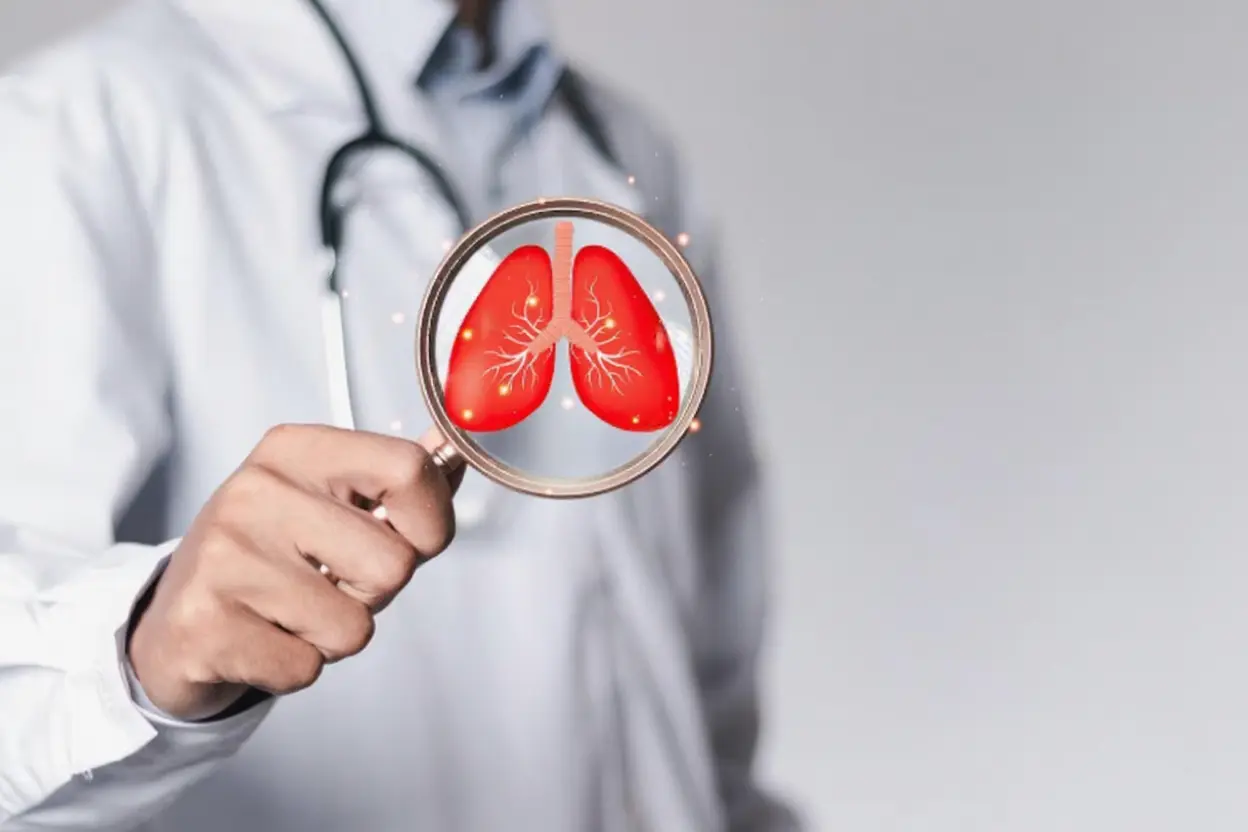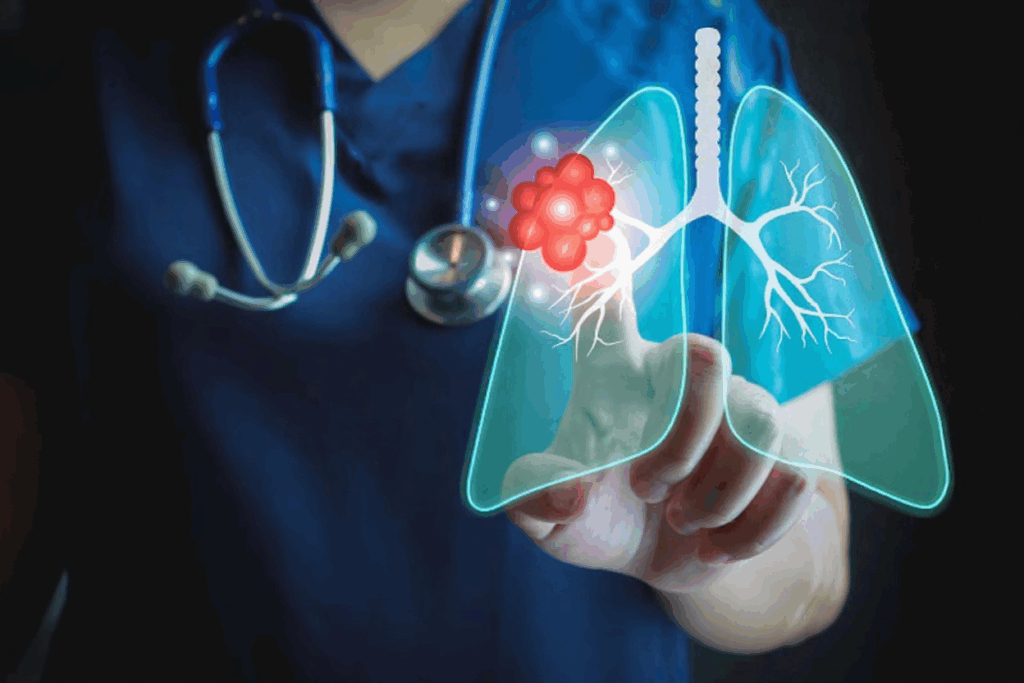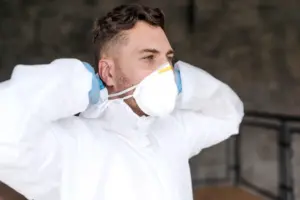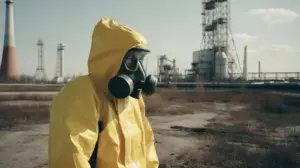Comprehensive Diagnosis and Treatment for Lung Cancer
Get comprehensive lung cancer treatment in Chennai with advanced diagnostics, chemotherapy, immunotherapy, and surgery from experienced oncologists for better outcomes and personalized care.

Lung Cancer
Lung cancer is one of the most common and serious types of cancer worldwide. It starts in the lungs, and as it progresses, it can spread to other parts of the body. Early detection, advanced treatments, and a multidisciplinary approach significantly improve outcomes for patients. The main treatment options for lung cancer include surgery, radiation therapy, chemotherapy, targeted therapy, and immunotherapy. VS Hospitals in Chennai offers state-of-the-art lung cancer care and treatment, with expert oncologists and a personalized approach to each patient’s condition.

Early Detection Saves Lives
Early detection and treatment are crucial for improving the chances of survival. If you notice any concerning symptoms, consult a healthcare provider immediately.
Signs and Symptoms
Chronic Cough
A persistent cough that does not go away or worsens over time is a common symptom of lung cancer.
Chest Pain
Pain in the chest, especially when breathing or coughing, may be an indicator of lung cancer.
Shortness of Breath
Difficulty breathing or feeling out of breath, even with minimal exertion, can occur as the tumor grows and obstructs the airways.
Coughing Up Blood
Hemoptysis, or coughing up blood, is a serious symptom of lung cancer and should be addressed immediately.
Unexplained Weight Loss
Losing weight without trying, combined with other symptoms, can suggest the presence of lung cancer.
Fatigue
Chronic tiredness or weakness is another common symptom associated with cancer, including lung cancer.
Wheezing or Hoarseness
A wheezing sound when breathing or changes in voice quality can indicate lung involvement.
Swelling of the Neck or Face
In some cases, lung cancer can cause swelling in the face, neck, or upper chest due to blocked blood vessels.
Blood in Urine
Hematuria - pink, red, or dark urine, the most common symptom
Frequent Urination
Feeling the need to urinate frequently, even when bladder is not full
Painful Urination
Experiencing pain or burning sensation while urinating
Back or Pelvic Pain
Pain that occurs as the cancer grows and spreads
Unexplained Weight Loss
Significant weight loss not related to diet or exercise
Fatigue
Feeling unusually tired or weak without a clear cause
Meet Our Expert Lung Cancer Oncologists
Risk Factors
Smoking
Smoking is one of the leading causes of bladder cancer. Chemicals in tobacco smoke can damage the lining of the bladder, increasing the risk.

Gender
Men are at a higher risk of developing bladder cancer than women.

Chronic Bladder Infections or Inflammation
Conditions such as bladder infections and long-term bladder inflammation can increase the risk.

Exposure to Chemicals
Prolonged exposure to certain chemicals, especially those used in the dye industry, rubber production, and chemical manufacturing, increases the risk.

Smoking
Smoking is the leading cause of lung cancer, contributing to approximately 85% of all cases. The risk increases with the number of cigarettes smoked and the duration of smoking.

Exposure to Secondhand Smoke
Even if you don't smoke, exposure to secondhand smoke from others can increase your risk of developing lung cancer.

Exposure to Asbestos
Working with asbestos or other harmful substances like radon or arsenic increases the risk of lung cancer.

Family History
A family history of lung cancer can increase the likelihood of developing the disease, suggesting a genetic predisposition.

Radon Exposure
Radon is a naturally occurring radioactive gas that can accumulate in homes, and long-term exposure can increase the risk of lung cancer.

Air Pollution
Living in areas with high levels of air pollution, such as large cities, may increase your risk of lung cancer.

Occupational Exposures
Certain occupations, such as mining, construction, and working with chemicals, can increase the risk of lung cancer due to exposure to toxic substances.

Personal History of Cancer
Individuals with a history of cancer, particularly those who have previously had head and neck cancers or breast cancer, are at higher risk for lung cancer.

Lung Cancer
Diet and Nutrition
Prevention
Diagnosis
Key Services
Key Facilities
Proper nutrition plays a vital role in lung cancer prevention and management. Although no specific foods can prevent lung cancer, a healthy diet can support the immune system and help manage the side effects of treatment. Here are some dietary recommendations:
- Eat a Variety of Fruits and Vegetables: A diet high in fruits and vegetables provides antioxidants, vitamins, and minerals that help protect cells from damage. Cruciferous vegetables like broccoli, cauliflower, and kale are particularly beneficial.
- Choose Whole Grains: Whole grains, such as brown rice, oats, and quinoa, are high in fiber and support overall digestive and immune health.
- Healthy Fats: Incorporating healthy fats, such as those from avocados, olive oil, and fatty fish, can help reduce inflammation and support heart health, especially during cancer treatment.
- Limit Processed Foods and Red Meat: Highly processed foods and excessive red meat can contribute to inflammation and oxidative stress. Reducing their consumption can lower cancer risk and support overall health.
- Increase Omega-3 Fatty Acids: Omega-3 fatty acids, found in foods like flaxseeds, walnuts, and fatty fish, have anti-inflammatory properties and can help reduce cancer-related symptoms.
- Stay Hydrated: Proper hydration is essential, especially during chemotherapy or radiation treatment. Drinking water and herbal teas can help maintain energy levels and support kidney function.
- Protein-Rich Foods: Protein is crucial for tissue repair, especially after surgery or during chemotherapy. Lean proteins like chicken, turkey, tofu, and beans are good choices.
A balanced diet that includes a variety of nutrient-rich foods can help improve overall health, boost the immune system, and support the body during lung cancer treatment.
While it is not possible to completely prevent lung cancer, certain lifestyle changes can significantly reduce the risk. The following preventive measures can help lower the chances of developing lung cancer:
- Quit Smoking: The single most important step in preventing lung cancer is to stop smoking. Even after years of smoking, quitting can significantly reduce the risk of lung cancer.
- Avoid Secondhand Smoke: Minimize exposure to secondhand smoke in both public and private settings. Creating smoke-free environments can help protect your health and the health of those around you.
- Test for Radon: If you live in an area with high levels of radon, test your home for radon and take measures to reduce its presence.
- Limit Exposure to Toxic Chemicals: Avoid or limit exposure to substances like asbestos, arsenic, and other carcinogens in the workplace or at home.
- Exercise Regularly: Maintaining an active lifestyle can help improve lung health and overall well-being, reducing the risk of cancer.
- Eat a Healthy Diet: As mentioned earlier, a diet rich in fruits, vegetables, and whole grains can help lower the risk of lung cancer.
- Regular Screening: Individuals at high risk of lung cancer, such as heavy smokers or those with a family history of the disease, should undergo regular screenings, including low-dose CT scans, to catch the disease early.
By making these lifestyle changes, you can reduce your risk and improve your chances of living a long and healthy life.
Diagnosing lung cancer early is crucial for effective treatment. Several diagnostic methods are used to detect and stage lung cancer:
- Physical Exam and Medical History: The doctor will perform a physical exam to check for signs of lung cancer and review your medical history, including risk factors.
- Imaging Tests: Chest X-rays, CT scans, and PET scans are used to detect tumors, determine the size and location of the cancer, and check for metastasis (spread) to other parts of the body.
- Sputum Cytology: In some cases, a sample of sputum (phlegm) may be analyzed for cancer cells.
- Biopsy: A biopsy involves taking a tissue sample from the tumor to confirm the presence of cancer cells. This can be done using a needle or during a bronchoscopy, where a thin tube is inserted into the airways.
- Molecular Testing: This test analyzes the genetic makeup of the cancer cells to identify specific mutations that may guide treatment decisions, such as targeted therapy.
- Blood Tests: Blood tests, including a complete blood count (CBC), may be used to assess overall health and detect abnormalities.
Early diagnosis is essential for improving treatment outcomes and increasing survival rates.
VS Hospitals offers a wide range of services for the diagnosis, treatment, and management of lung cancer. These services are designed to provide comprehensive care and improve patient outcomes:
- Lung Cancer Screening: VS Hospitals offers screening programs for high-risk individuals, including low-dose CT scans to detect lung cancer in its early stages.
- Surgical Oncology: Experienced surgeons at VS Hospitals perform lobectomies, pneumonectomies, and other procedures to remove tumors from the lungs.
- Chemotherapy and Radiation Therapy: Advanced chemotherapy regimens and radiation therapy options are available to treat lung cancer effectively.
- Immunotherapy and Targeted Therapy: Cutting-edge treatments like immunotherapy and targeted therapy are used for patients with advanced or metastatic lung cancer.
- Palliative Care: For patients with advanced lung cancer, VS Hospitals offers palliative care to manage pain, improve quality of life, and provide emotional support.
- Rehabilitation Services: Post-treatment rehabilitation, including physiotherapy and psychological counseling, is available to help patients recover and adapt to life after cancer treatment.
VS Hospitals is equipped with state of the art facilities to ensure that patients receive the highest level of care:
- Advanced Diagnostic Imaging: The hospital is equipped with the latest CT scanners, PET scanners, and MRI machines to accurately diagnose lung cancer and monitor its progression.
- Oncology Department: The oncology department at VS Hospitals is staffed with experienced specialists in lung cancer, providing expert care throughout the diagnosis and treatment process.
- Surgical Suites: The hospital features modern, fully equipped surgical suites to perform complex lung cancer surgeries with precision and safety.
- Chemotherapy and Radiation Units: Dedicated units provide safe and comfortable environments for chemotherapy and radiation therapy sessions.
- Patient-Centered Care: The hospital emphasizes patient comfort, providing private rooms, supportive services, and holistic care to meet the physical, emotional, and psychological needs of lung cancer patients.
Top Medical Facilities at Our Multispeciality Hospital – Here’s What Makes Us Different!
Ready to Begin Your Lung Cancer Care Journey?
Learn More About Lung Cancer Care
Frequently Asked Questions
Common symptoms of lung cancer include persistent coughing, chest pain, shortness of breath, coughing up blood, unexplained weight loss, and fatigue. If these symptoms persist, seek medical attention promptly for evaluation.
VS Hospitals offers a comprehensive approach to treating lung cancer, including surgery, chemotherapy, radiation therapy, targeted therapy, and immunotherapy. Treatment plans are personalized based on the type and stage of cancer.
While lung cancer cannot always be prevented, quitting smoking, avoiding secondhand smoke, minimizing exposure to radon and harmful chemicals, and maintaining a healthy lifestyle can reduce the risk. Regular screenings are also essential for high-risk individuals.
